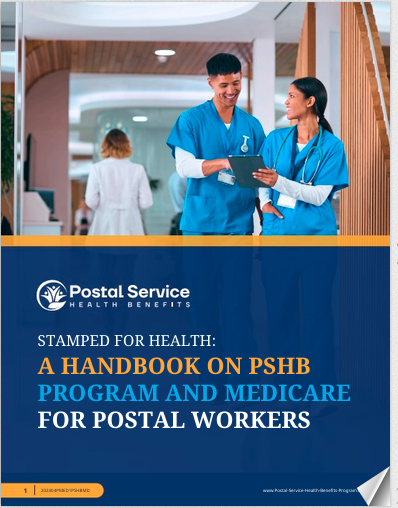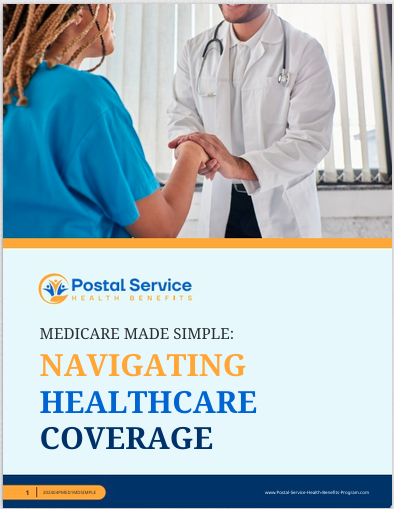Key Takeaways
-
If you are eligible for Medicare and skip enrollment at age 65, your Postal Service Health Benefits (PSHB) coverage may not function the way you expect. You could face penalties, higher costs, and limited access to coordinated benefits.
-
Some exceptions apply, but for most Medicare-eligible annuitants and family members, timely enrollment in Medicare Part B is essential to retain full PSHB coverage, especially for prescription drug benefits and reduced out-of-pocket costs.
Why Medicare Enrollment Matters When You Have PSHB
Turning 65 marks a significant shift in how your PSHB benefits interact with Medicare. If you don’t take the right steps at the right time, your PSHB plan could change in ways that catch you off guard. Starting in 2025, the PSHB Program is fully integrated with Medicare, meaning that your decision to enroll or not enroll in Medicare Part B can directly affect your access to health and prescription drug coverage.
The Rules Change at Age 65
When you become eligible for Medicare at age 65, your PSHB benefits start working in coordination with Medicare. Specifically:
-
Medicare Part A (hospital insurance) is typically premium-free and usually kicks in automatically if you’re already receiving Social Security.
-
Medicare Part B (medical insurance) requires enrollment and comes with a monthly premium.
If you skip Medicare Part B when you’re required to enroll, your PSHB plan may no longer offer the same level of benefits. In some cases, you may lose access to certain cost-saving features and even pharmacy benefits.
PSHB’s Requirement for Medicare Enrollment
Starting January 1, 2025, the PSHB Program includes a Medicare Part B enrollment requirement for certain enrollees. If you or a covered family member is Medicare-eligible and meets any of the following conditions, you must enroll in Part B to maintain full PSHB coverage:
-
You retired after January 1, 2025.
-
You are a family member of someone who retired after January 1, 2025.
-
You were not enrolled in Medicare Part B before 2025 and are newly eligible now.
Who Is Exempt from the Requirement?
The following individuals are not required to enroll in Medicare Part B to maintain PSHB coverage:
-
Retirees who retired on or before January 1, 2025, and were not already enrolled in Part B.
-
Current employees who were at least age 64 as of January 1, 2025.
-
Individuals living overseas.
-
Individuals enrolled in Veterans Affairs (VA) or Indian Health Services (IHS).
Even if you fall into an exempt category, not enrolling in Medicare Part B may still affect how your PSHB plan pays your claims.
What You Risk by Skipping Medicare at 65
1. Prescription Drug Coverage Could Be Cut Off
If you don’t enroll in Medicare Part B, you may also be ineligible for the prescription drug benefit that is part of the Medicare Part D Employer Group Waiver Plan (EGWP) offered through PSHB plans. This integration begins in 2025 and includes:
-
A $2,000 annual cap on out-of-pocket prescription drug costs.
-
Access to a broad pharmacy network.
-
Automatic enrollment in the drug benefit for those enrolled in Medicare Part B.
If you decline or fail to enroll in Part B, you will not receive this integrated drug benefit. As a result, you may lose pharmacy coverage altogether or face significantly higher drug costs.
2. Higher Out-of-Pocket Medical Costs
PSHB plans are designed to work with Medicare. If Medicare is not your primary payer because you didn’t enroll, your PSHB plan becomes your sole insurer. That means:
-
You could pay full coinsurance or copayments for services that Medicare would have covered first.
-
You may miss out on reduced deductibles and waived cost-sharing available only when Medicare Part B is in place.
3. Late Enrollment Penalties
Medicare Part B comes with a lifetime late enrollment penalty if you don’t sign up during your Initial Enrollment Period (IEP) at age 65 and don’t qualify for a Special Enrollment Period later. The penalty adds 10% to your premium for each 12-month period you delayed enrollment.
For example, if you wait three years to enroll in Part B, your premium could be 30% higher—for life.
4. Delayed Access to Medical Care
Missing the right enrollment window can also delay when your Medicare benefits begin. If you miss your IEP, you may have to wait until the General Enrollment Period (January 1 to March 31), with coverage beginning July 1. This gap could leave you with no access to affordable care for months.
Your Enrollment Timeline Matters
Timing is everything. Here are the key dates to keep in mind:
-
Initial Enrollment Period (IEP): Begins 3 months before your 65th birthday, includes your birthday month, and continues for 3 months after. You must enroll during this window to avoid penalties unless you qualify for a Special Enrollment Period.
-
General Enrollment Period (GEP): Runs from January 1 to March 31 each year. If you miss your IEP and don’t qualify for a SEP, you must wait for the GEP. Coverage will begin on July 1 of that year.
-
Special Enrollment Period (SEP): Available if you delayed Medicare because you were covered under an employer group health plan (as an active employee). This SEP lasts for 8 months after employment or coverage ends.
If you are a retiree at age 65 with PSHB coverage, you typically do not qualify for the SEP and must enroll during your IEP.
How PSHB Plans Coordinate With Medicare
When you’re enrolled in both PSHB and Medicare, your benefits work together:
-
Medicare pays first for covered services.
-
Your PSHB plan pays second, often covering most or all of the remaining costs.
This coordination reduces your out-of-pocket expenses dramatically. It also allows you to access:
-
Lower copayments.
-
Waived deductibles (in some plans).
-
Additional services or incentives exclusive to Medicare enrollees.
Without Medicare Part B, you lose these layered protections, leaving you responsible for costs Medicare would have paid.
The Role of the Part D Drug Benefit in 2025
As part of the PSHB transition, all Medicare-eligible annuitants and family members enrolled in Part B are automatically included in the Medicare Part D Employer Group Waiver Plan (EGWP). This benefit is:
-
Integrated with your PSHB plan.
-
Designed to reduce prescription drug costs.
-
Required for full drug coverage.
Opting out of Medicare Part B removes you from this drug benefit. You would not have access to the $2,000 cap or pharmacy network, and you may not be allowed to re-enroll later unless you have a valid SEP.
Why People Skip Medicare—and Why It Often Backfires
Some retirees believe they can rely on PSHB coverage alone and avoid the cost of a Medicare Part B premium. But this decision can lead to unforeseen expenses and disrupted access to care.
Here’s why this thinking is risky:
-
PSHB coverage is not a replacement for Medicare after 65. It’s designed to work with it.
-
Prescription drug coverage depends on Medicare enrollment. Skipping Part B can terminate your pharmacy benefits.
-
Future re-enrollment is limited. If you change your mind later, you could be locked out or forced to wait months with no coverage.
What You Should Do Before Turning 65
To ensure a smooth transition and uninterrupted coverage, take these steps:
-
Verify your Medicare eligibility well before turning 65.
-
Enroll in Medicare Part A and B during your Initial Enrollment Period.
-
Review your PSHB plan benefits to understand how they coordinate with Medicare.
-
Check your exemption status if you think you may not be required to enroll.
Planning ahead ensures you avoid penalties, maintain full coverage, and access all benefits available under the PSHB Program.
What to Expect if You’re Already Past 65
If you’ve already turned 65 and did not enroll in Medicare Part B, your situation depends on your employment and retirement status:
-
If you’re still actively working and covered under a group health plan, you may qualify for a Special Enrollment Period.
-
If you are retired, you may need to wait for the next General Enrollment Period, accept penalties, and deal with a coverage gap.
Either way, speak to a licensed agent listed on this website to understand your next steps.
Protecting Your PSHB Benefits Starts with Medicare Enrollment
The bottom line is simple: skipping Medicare Part B at age 65 can disrupt your PSHB coverage, increase your costs, and eliminate your access to critical benefits like prescription drugs. The integration between PSHB and Medicare is designed to lower your out-of-pocket costs and enhance your coverage—but only if you take timely action.
If you are unsure about your enrollment options or whether you’re required to sign up for Medicare Part B, now is the time to get clarity. Reach out to a licensed agent listed on this website to get answers tailored to your situation.







